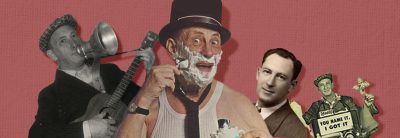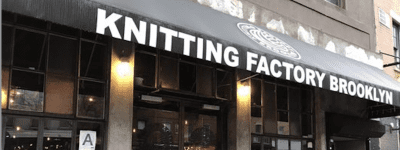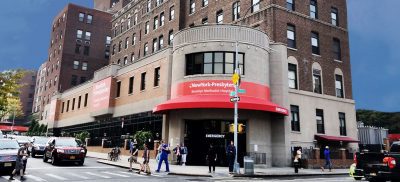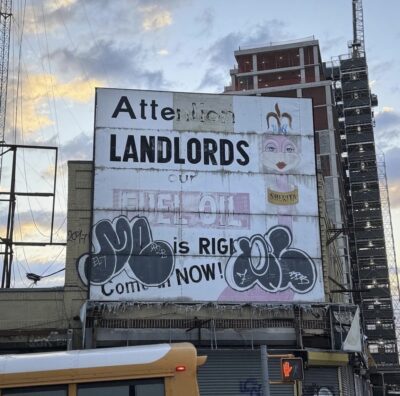'Boy Meets World' is out September 15
‘I can help people’: For Sleepy Hallow, music is therapy
Sleepy Hallow opens up about his new album, getting vulnerable and inspiring the next generation of drill rappers
Born in Jamaica and raised in Flatbush, Sleepy Hallow is a pioneer of the New York drill scene that has taken the city by storm and had mainstream success all over the globe.
Tegan Chambers, who performs as Sleepy Hallow, was one of the first drill rappers to have viral success on TikTok, especially with his hits “Deep End Freestyle” and “2055,” and has been an inspiration for the new generation of rappers in the city.
He was released from prison earlier this year after serving eight months for weapons possession and has been hard at work in the studio ever since, developing his sound and finishing his album “Boy Meets World,” which drops today.
“Boy Meets World” is Sleepy Hallow’s most ambitious project to date as he experiments with beats and genres in a star-studded tracklist that includes collaborations with rappers Lil Tjay and Fivio Foreign and producer-DJ Marshmello.
It also features some of his most introspective and emotionally raw lyrics to date: “I shouldn’t show emotion/But I still got some feelings that I’m tryna cope with,” he raps on “Motion” over a spare beat and a staccato acoustic guitar line. “I done lost a lot but winnin’ was the focus/I been hidin’ all my pain, hopin’ they don’t notice.”
Brooklyn Magazine sat down with Sleepy Hallow to talk about “Boy Meets World,” mental health and how being locked up affected his creativity.
This interview has been lightly edited for concision and clarity.
What did you want to come across most in your new album?
I wanted to show how much I have grown and how much better I am as an artist.
This album, “Boy Meets World,” is made up of tracks you recorded before you were inside and tracks recorded after you were released. How do you get a cohesive album from two completely different moments in time?
That’s what made me stick with the titles of the album. I’ve had the title from the first moment I thought of the album, but I didn’t want to move forward with it. I’ve been through so much that I had to stick with that title.
Did the experience of prison change your perspective on things? Did you notice a shift in your music after being released?
Yeah, especially coming home. I didn’t think that my music changed that much, but it definitely did. I’m exploring a lot of different sounds.
As a creative, what is it like being inside? Is it inspiring or restrictive?
You get more inspired, but it can be hard to write sometimes because there’s a lot of extra bullshit going on.
I love the song “Motion” on the new album; it is an open and heartfelt song. Do you think it is important to talk about your mental health in your music as it can often be stigmatized to show vulnerability, especially in the rap world?
Hell yeah! Showing emotion is a really popular thing right now, I’ve seen a whole bunch since I came home. That felt like the vibe for me. Everything is about vibes, so I just ran with it.
Does it feel therapeutic in the studio?
Definitely, that’s exactly the word! Even when I play back some of my songs, I understand why some of my fans say that I’m therapy for them. It’s not that I’m just talking about me, with the things that I say; they can also relate to things that they are going through.
Your fans say that your music has helped them through tough times. Does that ever come into your thinking when recording music about how you can affect people?
Making music is about how I feel, whether I’m mad or in my bag. When I make more heartfelt songs, knowing that I can help people is definitely on my mind. I always talk about me, it’s my life and my situation, but I say it in a way that they don’t think it’s one specific thing that I’m going through. They can compare it to their situation.
What is the energy like in live performances when you perform these songs, do you notice a change in the atmosphere?
Yeah, you can see it. They go crazy as soon as I sing one lyric and start yelling, “This one!” It’s a good feeling.
As an artist, that must be one of the most powerful feelings to affect people like that?
That’s my favorite part of it all, doing the shows and being there with my fans.
You were one of the first drill rappers in New York to go viral over TikTok. What was your reaction to that?
I didn’t even know that my shit was going viral over TikTok when I dropped it. People were showing me and telling me that I should download TikTok; I didn’t even get the app until this year.
It must be crazy that you have a whole new fanbase from TikTok without having the app.
Some of my fans say, “You’re not a real fan if you learned about him from TikTok.” I’m dead. That’s when you know it’s real when your fans are arguing because other fans are saying that they aren’t real fans.
Ice Spice recently said that her first exposure to New York drill was hearing you and Sheff G. How does it feel to know you inspired this new wave of rappers?
I appreciated that, especially the ones who admit it and say they started because of me. I appreciate that heavy because look at where they are at, look at the things they are doing. To know that you are part of that inspiration is fire.
A lot of people probably won’t admit they have modern influences.
They don’t want to seem like they’re dickriding or that they’re lame by looking up to someone.
What is the current state of the New York drill scene?
It’s shifting every day. There are all kinds of drill, like club drill. It’s different though, and I like it. I feel like they’re having fun with it and that’s one of the best things about making music, to have fun.
You were born in Jamaica and moved to Brooklyn when you were young. How did you find it when you first moved?
I was a kid so I didn’t really feel the adjustment like that because I was only 5 years old, so I didn’t really know what was going on. I didn’t have to deal with having an accent. You know when somebody has an accent and there are jokes? Not necessarily jokes on you but because it’s different.
As you got older did you notice that your parents were treated differently because of that? Or did it help that Flatbush has a big West Indian community?
There are definitely a lot of West Indians where I am from, so it was easy to fit in.
Are you working on new music at the moment?
I’ve just been winging it and going to the studio. I’m usually a slow worker because I like to analyze every last part of my music, but lately I’ve just been going in and recording and going crazy.
What do you think has changed that you’re now working faster?
The beats are coming, so it’s easy to put my words together. I just go into the booth and let my brain do whatever it does, I don’t have to think too hard. If you think too hard, then that shit puts you in a slump.
Are you thinking of experimenting more with music, you’ve done rap, drill and now dance music. What’s next?
I don’t know, wherever the wind takes me. I don’t like to say, “Let’s try this” or “Let’s switch the genre.” It just happens on its own. With “2055,” I didn’t say that I wanted to switch the genre and make a pop song, I just said to [producer Great John] that I’m trying to find a guitar beat. As I went forward with the song and analyzed it I realized that this don’t sound like no shit I’ve done before.
The best things happen when you don’t look for them.
The unexpected.
You might also like 


























